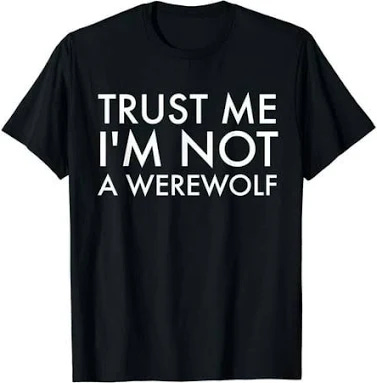I disliked Werewolf almost immediately on my introduction to it. A bunch of people sitting around in a circle saying “I’m not the killer!” as though that added any new information (because killers do not routinely confess unless they are caught red-handed). So I played a game or two, won or lost (I don’t remember) and got up and went and played something else.
BUT … many of the people I’d joined stayed in that circle and played over, and over, and over again. Night after night at the gaming convention where I’d tried it, starting after dinner and playing game after game until the wee hours of the morning.
Night after night. Convention after Convention.
Dimitry Davidoff’s Mafia (rethemed to Werewolf by Andrew Plotkin) attracts such a dedicated following because it deals with primal human urges — gossip, social cohesion, trying to figure out what the hell just happened, then vengeance! (If you don’t think those are base instincts please explain Law and Order’s umpzillion franchises.)
I'd call it a party game, except that it's a game of accusations, lying, bluffing, second-guessing, assassination, and mob hysteria.
I really like it. But then I go to some strange parties. — Andrew Plotkin
The rules are simple … Werewolves (secretly) pick someone to murder each night and the villagers vote on someone to execute each day1. Actually, the rules aren’t simple because there are roughly as many variants as groups that play. Typically you have a “Seer” who is a villager that can tell if someone is a Werewolf (inspecting one player per night), but of course if the Seer publicly announces who they are they tend to be brutally mauled the next night. But there are dozens or hundreds of variant characters — all with special abilities. Pick and choose.
Even with a simple set of characters, there is a information to gather. Werewolves know who they are, so can trust each other. But if you are too obvious, then the villagers can often kill you in a 1-2 punch2. Basic strategy hinges on backing your partner while not being too obvious that you are a team. But I disliked the game because — at least for novice players like myself — most of the game involves saying “But I’m not a Werewolf!”
Werewolf keeps popping up over and over. Among Us has the human crew the human crew of a spaceship doing their tasks to keep the ship running … at least until a body is discovered. I vastly prefer this to Werewolf because of the computer moderation, and the structure that forces players to separate, the intruders to kill quietly, and the much bigger amount of “No, I didn’t do it!” information available. Among Us took a pandemic to get noticed, but once it did I took the gaming world by storm.
Just recently, I was watching The Devil’s Plan, a reality show involving puzzles and games and the first game was a live action Werewolf variant themed around bio-terrorists and infections. Several players even noted it on camera during the rules explanation “Ah, this is like Mafia!” (although it also stole quite heavily from Among Us, particularly in set design and the fact that players could secretly invoke their special actions — knowing the referees were watching/moderating via camera)3.
Mafia started the entire “Social Deduction” genre, sort of recreating the classic Murder Mystery novels as a game where some people were murders and some were potential victims and most of the clues are nothing more than tone of voice and glances. For that reason, I consider Mafia one of the Top 100 Most Influential Games of the 20th Century.
(For resources on Werewolf, you can check out the BGG page or Andrew Plotkin’s Werewolf page, which also includes full rules on how to play without buying anything).
In order to keep each player’s role secret, the game is usually run by a non-playing Moderator who tells people to close their eyes and then interacts with the secret roles to let the Werewolves point to who they want to kill, etc.
One common variant is to have two villagers (often called “Masons”) who know each other aren’t the werewolves because they were out at the Lodge together, but normally villagers can’t trust each other, at least not at the beginning.
While I don’t particularly enjoy Werewolf, I liked Among Us. I assume I’d love playing in real person with realistic fog-of war (players only knowing the exact details for their own powers) and on an excellent Hollywood set. As it was, watching it was still fun. (This game is in the first two episodes of Season 1). My review of Devil’s Plan.






I also don't really enjoy Werewolf (base game) but I like how many of its successors add data for people to strategize and deduce. While you properly mentioned Among Us as one of these, it's a videogame and I'd prefer a boardgame example. I like Battlestar Galactica as one such boardgame that has social deduction elements backed by gameplay mechanics (and incredible theming too!). Sure, you can say you're not a Cylon, but how come you keep on participating in crisis checks that fail? I'm sure you can think of other games like this.